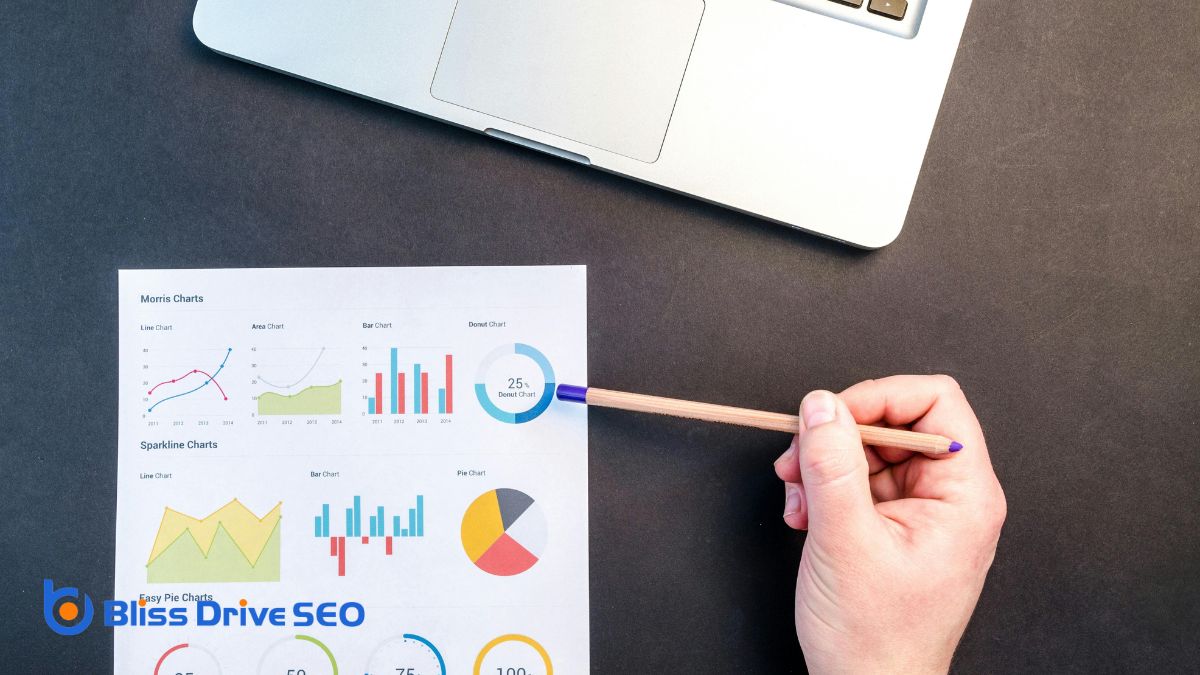Digital Marketing Services
Learn More About Us

When considering whether to tackle SEO yourself, you need to weigh several factors that could influence your decision. It's not just about saving money or gaining control over your digital strategy. You should think about the time you can dedicate, your willingness to learn, and how quickly you can implement changes. While it's tempting to jump in for cost savings and personal growth, SEO requires ongoing effort and expertise that might stretch beyond your current capacity. So, how do you decide if the DIY route is right for you or if it's time to call in the experts?
Before delving into the world of SEO, it's vital to grasp its foundational concepts. SEO, or Search Engine Optimization, is how you make your website more visible to people using search engines like Google. When someone types a query, you want your site to appear as high as possible in the results. Understanding keywordsWords or phrases that users type into search engines to find information. is pivotal. These are the words and phrases your potential visitors might use when searching for information related to your site's content.
You should focus on both on-page and off-page SEOOptimization actions taken outside the website, primarily involving backlinks and social media.. On-page SEOOptimization techniques performed directly on the website, including content and HTML source code. involves optimizing elements on your site, like content, images, and meta tagsHTML tags that provide information about a web page to search engines and visitors., to make them search-engine friendly.
Off-page SEO, on the other hand, involves activities outside your website, such as backlinksLinks from other websites pointing to your website, crucial for SEO. from other sites, which can enhance your site's credibility.
Another key aspect is understanding user intent. What are people really looking for when they type in certain words? Crafting content that meets these needs will enhance your site's relevance.
Also, don't forget about technical SEOOptimizing the server and website structure to improve search engine crawling and indexing., which ensures your site is fast, mobile-friendly, and easy for search engines to crawl. By mastering these basics, you'll set a strong foundation for successful SEO.

Mastering the basics of SEO lays the groundwork for taking on SEO tasks yourself, and there are numerous benefits to DIY SEO. First and foremost, you gain complete control over your strategy. You decide what changes to implement and when allowing you to tailor your approach to your business's unique needs.
Plus, working on SEO yourself helps you understand your audience better, as you'll be directly involved in analyzing search trends and behavior.
Here are some key benefits of DIY SEO:
As you tackle SEO yourself, you might encounter challenges like managing your time effectively while juggling daily tasks. SEO also demands a certain level of technical skills, which can be intimidating if you're not familiar with the latest tools and trends. Balancing these aspects is essential to avoid feeling overwhelmed and to guarantee successful implementation.
When diving into SEO yourself, one of the biggest hurdles you'll encounter is managing your time effectively. SEO is a continuous process that requires regular attention and updates. Balancing this with your other responsibilities can become overwhelming. You'll need to allocate time for research, strategy formulation, and implementation, all while keeping up with the latest SEO trends and algorithm changes.
Here are some key time management challenges you might face:
A basic understanding of SEO's technical aspects is necessary if you're considering doing it yourself. You'll encounter several challenges, and knowing what to expect can help you navigate these obstacles.
First, you'll need to grasp how search engines crawl and index your website. This involves understanding XML sitemaps, robots.txtA file that tells search engine crawlers which pages or files they can or cannot request from your s... files and how to guarantee your site is properly structured for search engine accessibility.
You'll also face the task of optimizing your website's speed. Slow-loading pages can harm your search rankingsThe position at which a website appears in the SERP., so you must learn about image optimization, browser caching, and minimizing HTTP requests. These tasks might require familiarity with tools like Google PageSpeed Insights or GTmetrix.
Moreover, ensuring your website is mobile-friendly is essential. With more users accessing sites via mobile devices, responsive designA web design approach that makes web pages render well on a variety of devices and window or screen ... becomes a necessity. You might need to adjust your site's layout or use tools that test its mobile compatibility.
Lastly, understanding how to implement and use structured data can boost your site's SEO by helping search engines understand your content better. While these aspects may seem challenging at first, taking the time to learn them can greatly enhance your SEO efforts.

Venturing on the journey of self-improvement for SEO can be both thrilling and challenging. To succeed, you'll need the right tools to guide your way. These tools equip you with insights, streamline tasks, and help you make informed decisions. Here's a list of essential tools you should consider using:
These tools empower you to optimize effectively and efficiently.
Venturing on the path of managing your own SEO requires a significant time commitment. You'll need to invest hours in learning the fundamentals, keeping up with ever-changing algorithms, and understanding best practices. SEO isn't a one-time task; it's an ongoing process that demands regular attention. You'll have to monitor your website's performance, tweak strategies, and produce optimized content consistently. This commitment can be overwhelming, especially if you're juggling other responsibilities.
Research plays a massive role in SEO. You'll spend time analyzing keywords, understanding your audience, and examining competitors. This research is essential for developing effective strategies, but it's time-consuming. Once you've gathered data, implementing changes to your website can take additional time.
Moreover, SEO involves trial and error. Not every tactic will work, so you'll need to test different approaches and adjust based on results. This iterative process requires patience and persistence.
Ultimately, the time you spend on SEO directly influences your website's visibility and success. If you're ready to commit, you can gain valuable skills and potentially see rewarding outcomes. However, be prepared for the dedication required to achieve results.
When considering the cost of SEO, you might think about the savings from a DIY approach compared to hiring professionals. While doing it yourself can save money upfront, don't overlook the potential hidden costs like software tools or lost time.
On the other hand, hiring experts comes with expenses but might offerThe specific product or service being promoted by affiliates. better results, making it worth the investment.
Taking on SEO yourself can lead to significant savings, especially if you're operating on a tight budget. When you handle your own SEO, you eliminate the need to pay a professional or an agency, which can be quite costly. By investing your own time and effort, you can use the funds you save to support other areas of your business. Plus, you'll gain valuable skills and insights into how search engines work, which can benefit you in the long run.
Here are a few key ways DIY SEO can save you money:
These savings can be significant, especially as your business grows.

Hiring professionals for SEO can be a significant expense, especially for small businesses or startups. You might find yourself wondering if the cost is justified. Professionals bring expertise and experience, which can lead to faster and more efficient results. However, their services come at a price that might strain your budget.
When you enlist an SEO expert, you're paying for their knowledge, tools, and time. They can optimize your site, conduct keyword research, and track analytics—all while staying up-to-date with search engine algorithms. While these services can drive more traffic and potentially increase sales, the initial investment can be challenging.
SEO agencies or freelancers usually offer different pricing models, such as hourly rates, monthly retainers, or project-based fees. Hourly rates can range from $75 to $200 or more, while monthly retainers might cost anywhere from $500 to several thousand dollars. Consider what fits your budget and goals.
Before you make a decision, weigh the potential returns against the expense. A good professional can save you time and improve your site's performance, but it's important to verify the cost aligns with your financial capabilities and long-term objectives.
Beyond the clear expenses of hiring professionals, hidden SEO costs can also impact your budget. When considering doing SEO yourself, it's essential to recognize these less obvious expenses that can add up over time.
First, think about the time investment. SEO isn't a one-time task but an ongoing process that requires regular updates and monitoring. The hours you spend learning and implementing SEO could be spent growing other areas of your business.
Here are three hidden SEO costs you might encounter:
Understanding these hidden costs helps you make an informed decision about whether to handle SEO yourself.
Anyone venturing into the world of SEO will find a wealth of learning resources readily available. You can start with online courses offered by platforms like Coursera, Udemy, or LinkedInA professional networking site used for career and business networking. Learning that cover everything from basics to advanced strategies. These courses often provide a structured approach, making it easier to grasp complex concepts at your own pace.
Blogs and websites dedicated to SEO are another invaluable resource. Websites like Moz, Ahrefs, and Search Engine Journal regularly publish articles and guides that keep you updated with the latest trends and techniques. These resources offer insights from industry experts, helping you understand the nuances of SEO.
PodcastsAudio content distributed through digital channels, often in series format. and YouTube channels also serve as fantastic learning tools. Listening to industry experts discuss real-world SEO challenges can offer a different perspective and enrich your understanding.
Channels like Neil Patel and Backlinko break down strategies into digestible content, making it accessible for beginners.
To gauge your SEO efforts, focus on key performance indicators like traffic and conversionThe completion of a desired action by a referred user, such as making a purchase or filling out a fo... rates. You should regularly check how your site's rankings improve over time as a measure of success. By doing this, you'll know if you're on the right track or if adjustments are needed.

Evaluating your SEO efforts through Key Performance Indicators (KPIs) is vital for understanding what's working and what needs improvement. KPIs are like the compass that guides your SEO journey. They help you measure success and make informed decisions about your strategies. Here are some important KPIs you should focus on:
In addition to monitoring KPIs, understanding traffic and conversion rates is pivotal to measuring SEO success. Traffic refers to the number of visitors your website attracts. It's essential because it represents your potential customer base. You can use tools like Google Analytics to track this data. Check if your traffic is increasing over time. More visitors often mean broader awareness of your brand, but it's not just about the numbers.
Conversion rates tell you how well your site turns visitors into customers. It's calculated by dividing the number of conversions (like purchases or sign-ups) by the total number of visitors, then multiplying by 100 to get a percentage. High traffic with low conversion rates might indicate issues with your site's user experience or content relevance.
To improve, focus on targeted keywords and make sure that your landing pages align with user intent. Analyzing traffic sources, such as organic search, direct visits, or referrals, gives insights into where to direct your efforts.
You should pay attention to both metrics because they help you gauge the effectiveness of your SEO strategies and guide you in making adjustments for better results.
A key component of measuring SEO success is analyzing ranking improvements. This means tracking how your website's search engine rankings change over time. It's not just about getting to the first page; it's about understanding the journey there. You'll want to know which keywords are driving traffic and which pages are performing best. This analysis helps you see what's working and what needs tweaking.
To effectively analyze ranking improvements, consider these steps:

Tackling SEO can feel overwhelming, especially when you're juggling other business responsibilities. It's a complex field that demands time, attention, and expertise. If you're finding it difficult to keep up with the latest SEO trends or your website isn't performing as well as you'd hoped, it might be time to hire professionals. They have the skills and experience to analyze your site's needs, develop effective strategies, and implement changes that can enhance your online presence.
You should also contemplate bringing in professionals if you do not see the results you desire despite your efforts. Sometimes, an outside perspective can identify issues or opportunities that you might've overlooked. SEO experts can provide a fresh set of eyes and a thorough approach that's aligned with current search engine algorithms.
Additionally, if your competitors are consistently outranking you, they might be utilizing professional SEO services. To stay competitive, you might need similar expertise. Remember, SEO is a long-term investment. If you're unable to commit the necessary resources and time to it, professionals can make sure that your business doesn't fall behind in the digital landscape.
Finding the right balance between DIY efforts and expert help in SEO can have a significant impact on your online success. You might feel tempted to handle everything yourself, especially when you're just starting out. However, knowing when to bring in an expert can save you time and offer greater results. As you weigh your options, consider your strengths, available time, and the complexity of your SEO needs.
Here are some tips to help you decide:
Balancing DIY efforts with expert help isn't just about saving money; it's about making strategic decisions for your business's growth.
In deciding whether to tackle SEO yourself or hire experts, weigh your skills, time, and goals. DIY SEO empowers you with control and learning opportunities but demands consistent effort and knowledge. Professional help offers expertise and saves time, yet it can be costly. Consider how much time you can dedicate and if you're willing to learn. Ultimately, balancing between doing it yourself and seeking professional guidance can lead to the best results for your website.
